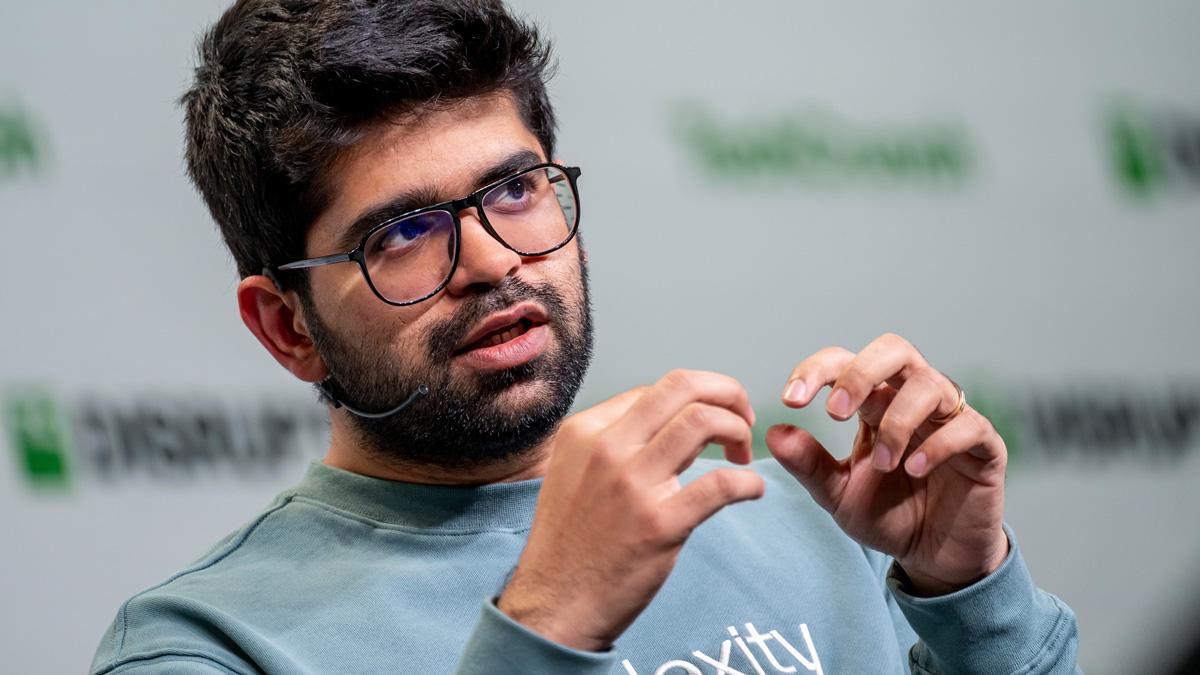 Image Source: Adweek
Image Source: Adweek
Aravind Srinivas has quickly gone from a little-known AI researcher to one of the industry’s most closely watched entrepreneurs after Perplexity AI, the company he co-founded and leads as CEO, made global headlines this week by tabling an unexpected $34.5 billion bid to buy Google’s Chrome browser. The audacious offer thrust Srinivas and his company into the center of debates about internet competition, antitrust, and the future of AI-driven search experiences.
Key highlights of the $34.5 billion Chrome bid
• Srinivas offered $34.5 billion in cash to Sundar Pichai, CEO of Alphabet, for Google’s Chrome browser, just as US courts consider antitrust remedies that could, in theory, force Google to divest Chrome.
• Perplexity’s market valuation is less than half the bid, currently at $14–18 billion, making the offer unprecedented both for its size and symbolic ambition.
• The move comes as Perplexity ramps up its own AI-native browser, Comet, designed to challenge legacy search experiences and browser monopolies.
• Srinivas’s offer included public commitments to keep Chrome’s open-source foundation, maintain Google as Chrome’s default search option—but allow easy switching for users—and ensure privacy and innovation aren’t compromised by a possible sale.
Who is Aravind Srinivas?
Early life
• Born in Chennai, India, in 1994, Srinivas was pushed by his mother to “dream big” and attend the prestigious IIT Madras, where he completed his undergraduate and master’s degrees in electrical engineering before earning his PhD in computer science from UC Berkeley.
• He worked closely with leading AI experts Yoshua Bengio, and held research roles at OpenAI, Google Brain, and DeepMind—an experience that shaped his understanding of large language models and global internet infrastructure.
Career and Perplexity AI
• In 2022, Srinivas joined forces with Denis Yarats, Johnny Ho, and Andy Konwinski to launch Perplexity AI in San Francisco. Their mission: develop a search engine and browser built around transparency, direct answers, and real-time data, powered by cutting-edge AI.
• Srinivas raised more than $165 million in funding from notable tech investors including Jeff Bezos, Elad Gil, Nat Friedman, NVIDIA, and Bharti Airtel, the latter through a partnership that gave 360 million Indian users access to Perplexity Pro.
Perplexity’s rise and strategy
• Perplexity’s monthly queries topped 780 million in July 2025, with more than 30 million active users and a robust pace of new features—including the launch of Comet, its AI browser capable of performing advanced web tasks by voice or text.
• The company’s revenue and usage numbers have surged, projected to top $150 million annualized by mid-2025.
• Srinivas has become known for his reliance on direct communication, transparency, rapid product iteration, and ambitious bets—qualities that led directly to the Chrome bid.
Implications and the industry reaction
The timing of Perplexity’s offer was not random—it coincided with ongoing US government antitrust action against Google, where federal courts are considering remedies for Google’s dominance in search, including possibly forcing the sale of Chrome. Perplexity positioned its bid as serving “the highest public interest”—opening up web competition and defending innovation and user privacy.
While the offer is seen by many experts as symbolic, it’s already prompted serious debate about the future of browsers, the role of AI in reshaping fundamental web experiences, and the ability of new entrants to challenge tech giants.
Looking forward
Whether Perplexity AI ever really acquires Chrome or not, Aravind Srinivas’s headline-grabbing gambit proves both his company and his vision are squarely on the industry’s radar. The Chrome bid wasn’t just about buying a browser—it was a larger signal of how Srinivas and Perplexity see the coming era of information: open, user-driven, and consistently reimagined by artificial intelligence.
Source names: Times of India, India Today, CNBC, Financial Times
Advertisement
Advertisement



